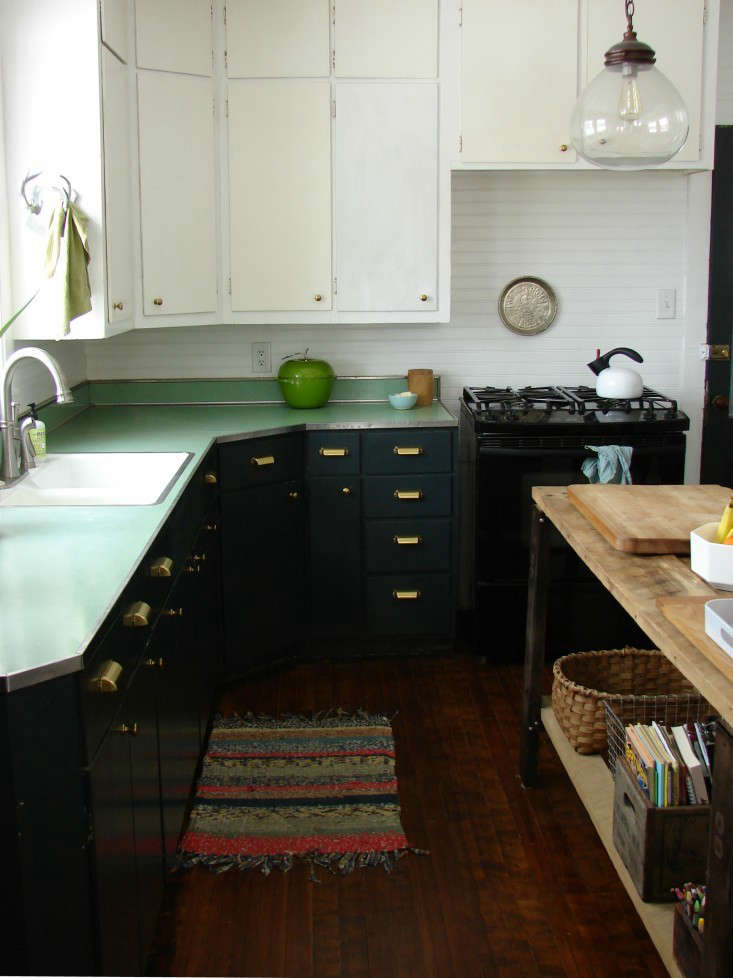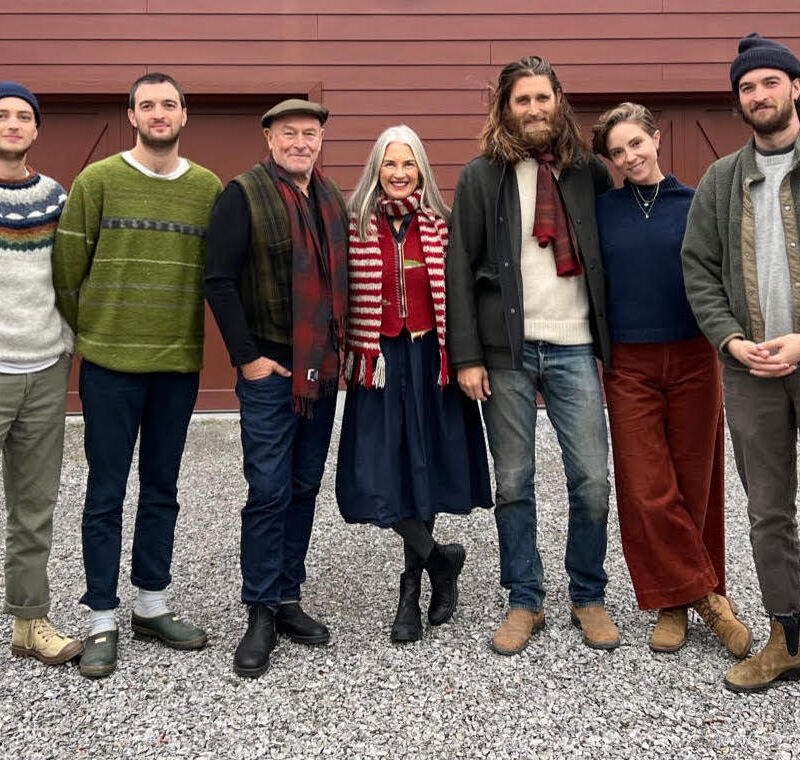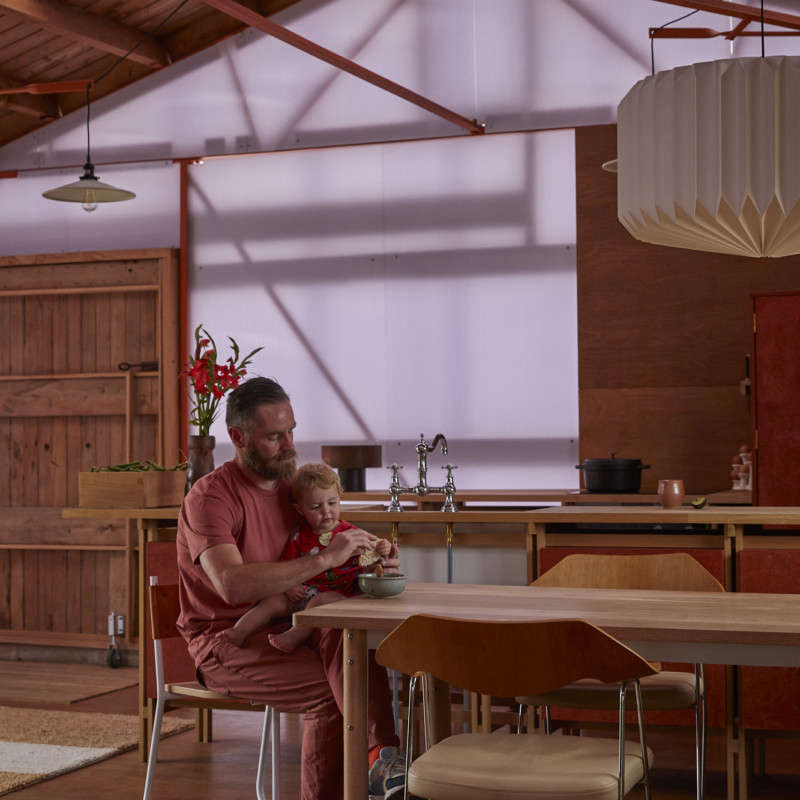In this 1920s kitchen remodel, architect Michael Howells proves that tradition and modernity can coexist harmoniously.
The house, located in Northeast Portland, has been called home for over forty years by a psychotherapist. After being coaxed by her three grown children (all of whom were raised in the home) to remodel the kitchen, she decided to take on the challenge with friend and local architect Howells (a Remodelista Architect and Design Directory member). Here he shares some of the logistics and inspiration behind updating the kitchen of an older home. He also offers his insight on what is paramount for a successful remodel.
Photographs by Anna M. Campbell. Visit Howells Architecture + Design for more information.

RM: What was your main source of inspiration for this project?
Michael Howells: My concept for this kitchen is a "take" on the classic English scullery; bringing a little Downton Abbey flavor to this kitchen renovation, but also working clean modern lines into the design to give a timeless beauty and maximize functionality in a small space. The house is an elegant 1920s English-influenced Portland home, so that was my starting point. The traditional English influence comes through in the royal blue, black, and white color scheme, period-reproduction pulls and lighting, and a Shaws apron sink. Modern appliances, refined lines and a bold wall of tile bring the kitchen into the present.

Above: Blue Opal tiles by Heath Ceramics create the bold backdrop.

Above: The cabinets were designed by Howells and fabricated by Wolf and Son, a local cabinetmaker in Portland. The panelized doors refer to traditional door construction, says Howells. Doors used to be made by infilling a frame with a panel that was made up of side-by-side boards. In this case, the panel is flush with the surrounding frame, conjuring modernity.

Above: The kitchen and adjoining breakfast room before the remodel.

Above: The size of the renovated space, inclusive of breakfast room, is approximately 9 by 27 feet. All appliances are by Jenn-Air.
RM: Did you repurpose anything from the former kitchen?
Howells: Nothing was repurposed. The old kitchen dated to the 1960s/70s and was not original to the home, nor in good shape. As with most of our kitchens, we took the opportunity to upgrade the home’s hot water heater to a gas-fired, tankless, on-demand unit—an adjustment that affords a significant reduction in energy use relative to a conventional American-style hot water heater.


RM: Is there a detail you are most proud of in the new finished space?
Howells: I love the way the colors work together. The owner is particularly happy with the windows at the sink, and the way the kitchen and breakfast room open to each other. The kitchen is light and bright and bold, which really helps in the Portland climate.


RM: What would be your main advice for someone about to embark on a similar project?
Howells: I have three main pieces of advice, which all have to do with hiring the right professional:
I think the best projects come from placing trust in the person you are hiring and taking at least a little risk, rather than using the architect as a drafting service. This goes back to my favorite thing about this project: the client's trust in me and willingness to take a risk and let me put ideas on the table.
Pick your professional carefully: If you hire an architect or designer, be sure he or she sees the attributes of your home and not just the weaknesses you want addressed. For example, it's obvious that this kitchen needed updating. But there's a lot of soul in this house. It's a graceful old Portland home and its owner has been happy here for some 40 years and raised her kids here. Her whole family was invested in her remodel ,and it was exciting to come up with something that could do justice to the expense and the occasion.
Lastly, find someone who is solid on the follow-through. A real architect is there during construction, closely monitoring every step. A kitchen remodel should be taken very seriously by whomever you hire.
N.B. Howells carefully considered the environment during each phase of the renovation: All former appliances and plumbing fixtures went to the Rebuilding Center in Portland, a nonprofit organization; all wood materials were recycled at Portland Wood Waste Management; and all concrete and cardboard were recycled through the city.
Piqued by Howell's inspirational source? If so, visit our post on Downton Abbey-Inspired Scullery. and see our Downtown Abbey Scullery pinboard.




Have a Question or Comment About This Post?
Join the conversation (25)